A Thick-billed Kingbird Feeds Its Young
Parent birds work hard to feed their little ones
At the beginning of July, I shared a post about the Thick-billed Kingbird. This species' range in the United States is limited to southeastern Arizona. They are fairly common during summers in the habitat of foothill sycamore and cottonwood groves. The pair that I saw in July in the Santa Rita Mountains was not yet nesting. I returned to the same area last week in hopes of seeing young Kingbirds. I was not disappointed.
There were three young fledglings. These young Thick-billed Kingbirds had a more yellow belly than the adults, and did not have the black head and white face of the adult. The fledglings were off the nest but remained on the nest tree, waiting for one of the parents to bring them food. The adult Thick-billed Kingbirds did their job well. At one point the adult returned with a nice sized cicada!
The young Kingbird begged and begged so the parent stuffed the cicada into the young bird's bill. All of the young Kingbirds have an orange or light colored gape, the fleshy inside corner of their beaks where the upper bill meets the lower bill. This is thought to visually assist the parent bird in delivering food directly into the young bird's mouth by giving the parent a better "target". You can see the young bird has closed its nictitating membrane, the third eyelid, to protect it during the close transfer.
The adult bird checked to make sure the young bird had a hold of the food.
As the young Kingbird swallows the cicada whole, the parent seems to have turned away, job done!
I'm not sure what they might be communicating but they both seem to be checking in with each other.
The adult flew off while the young bird remained on the same branch. Several minutes later the Thick-billed Kingbird returned. The food exchange was too quick for me to get a photo but I did catch the aftermath. It seems as if the young bird had something in its throat.
The young Kingbird never seemed to swallow its snack and relax. It continued to react with an open bill.
The adult bird flew off but the youngster continued to act strangely. Here, you can see it with its tongue protruding. It seemed to be choking on the snack.
Finally, after about 40 seconds (according to the time stamp on my photo images), the young Kingbird coughed up something. It might have been the hard outer shell of some insect. After working with this for a while, the bird expelled the item and it fell to the ground.
And then, the young Thick-billed Kingbird relaxed and began waiting for the next food delivery.
This species of Kingbird has not been studied well, so there is little information about specific behaviors compared to what we know about other Kingbirds. Still, it is yet one more interesting summering species here in Southern Arizona. Soon, these young Thick-billed Kingbirds will be hunting on their own and then the entire family will head back south for their winter in Mexico.
By the way, cicadas offer a rich food resource for birds offering a rich supply of protein, healthy fats, vitamins, and minerals.
.
https://www.chicagobirder.org/blog/2024/5/7/welcome-to-the-protein-bar


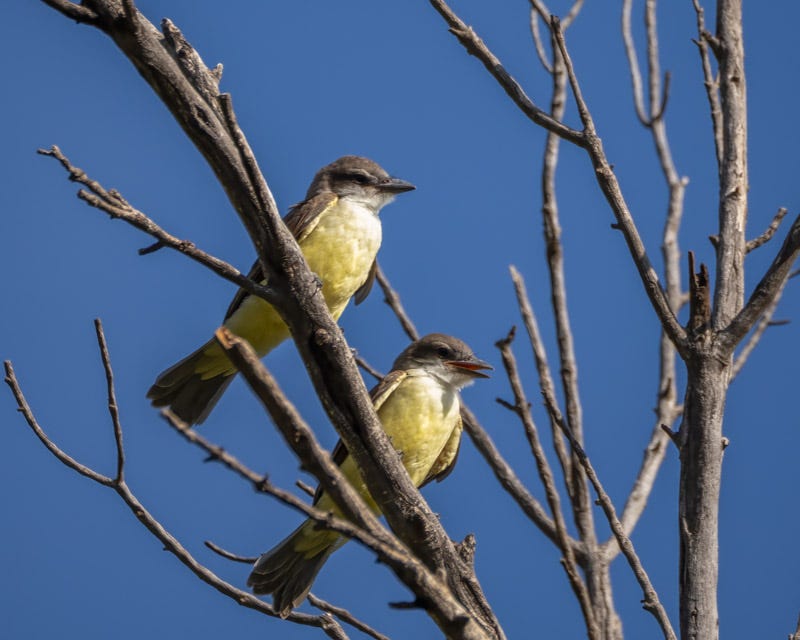
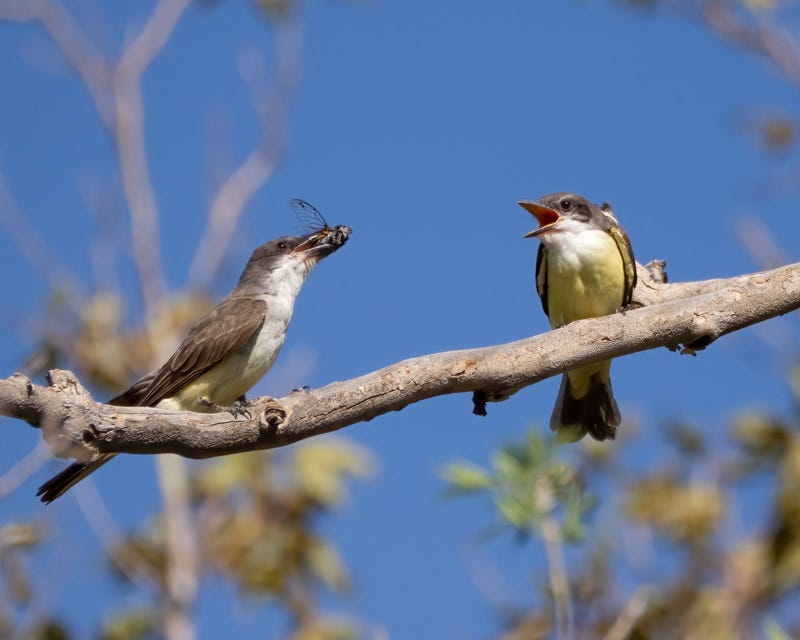
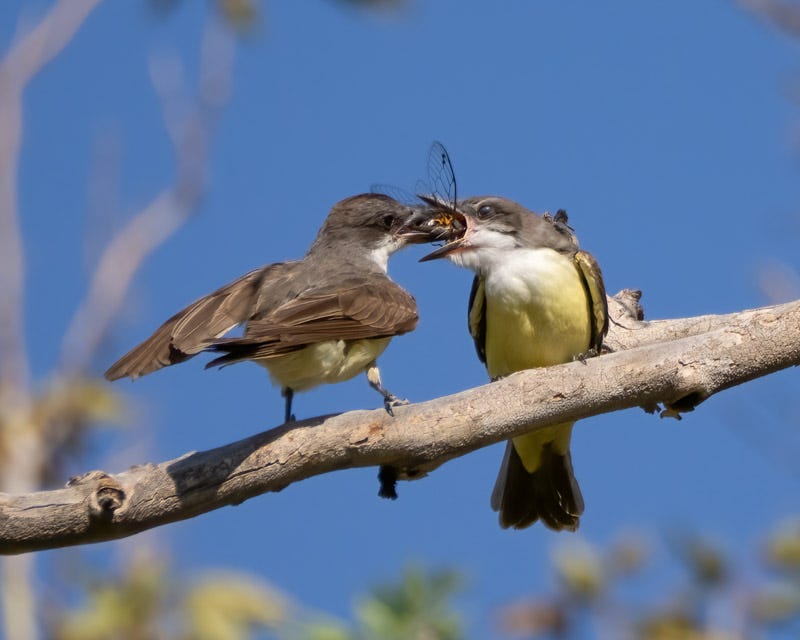
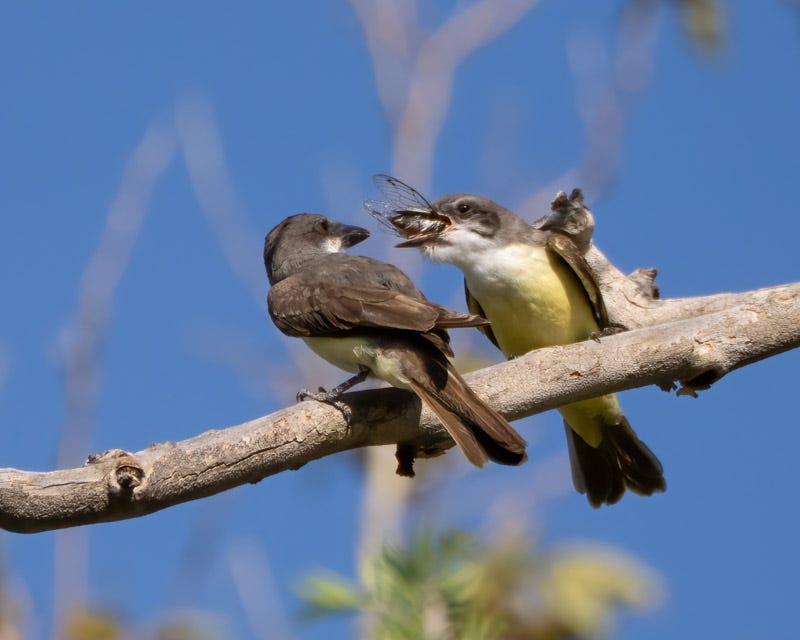
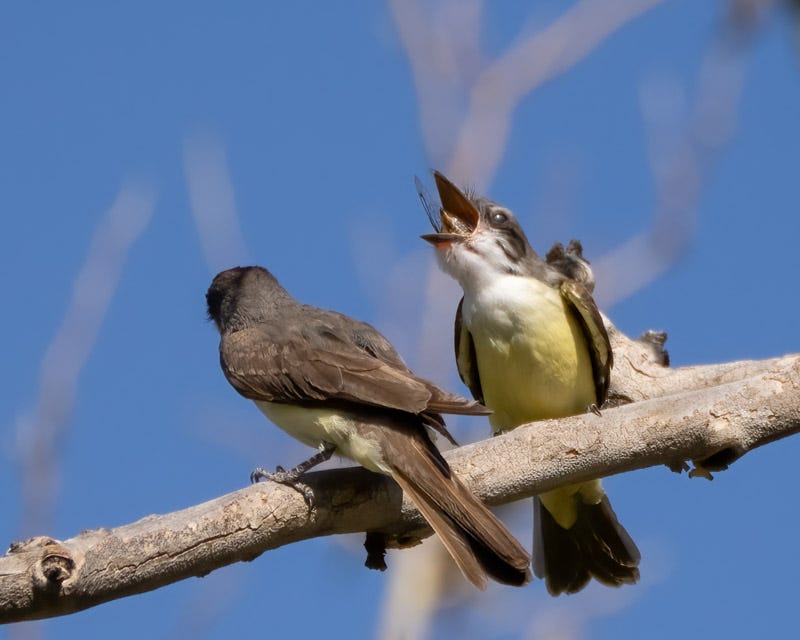
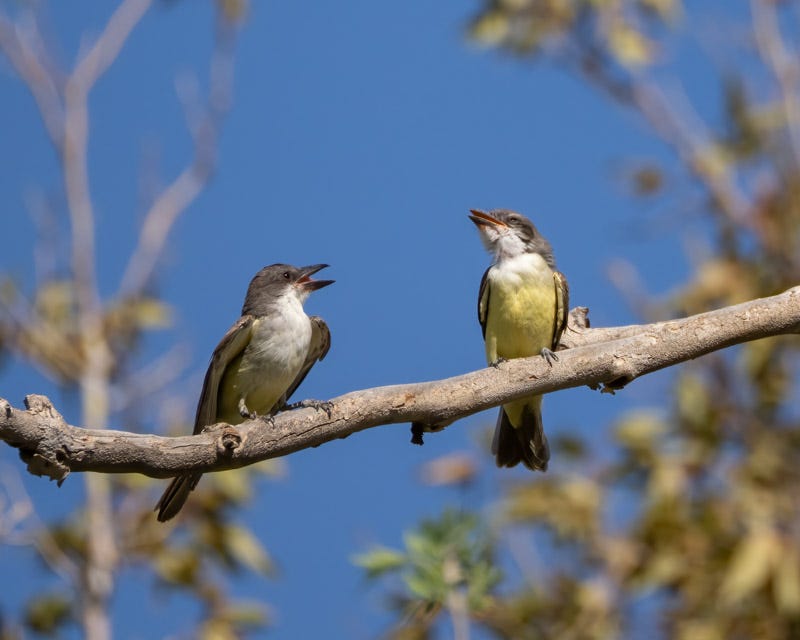
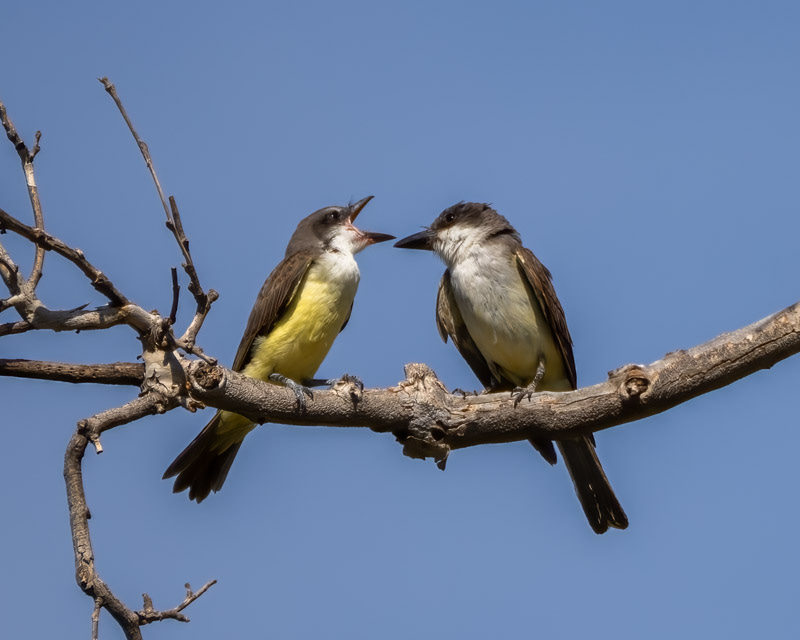
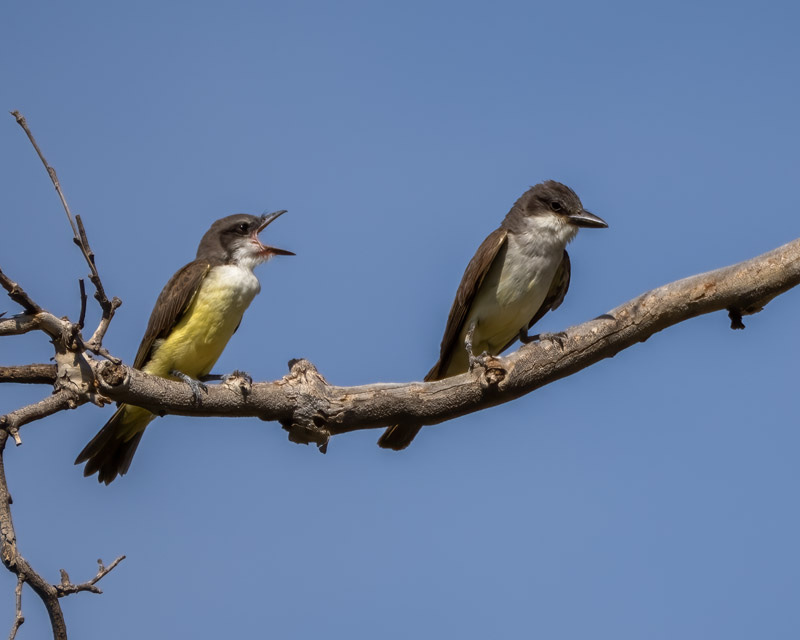
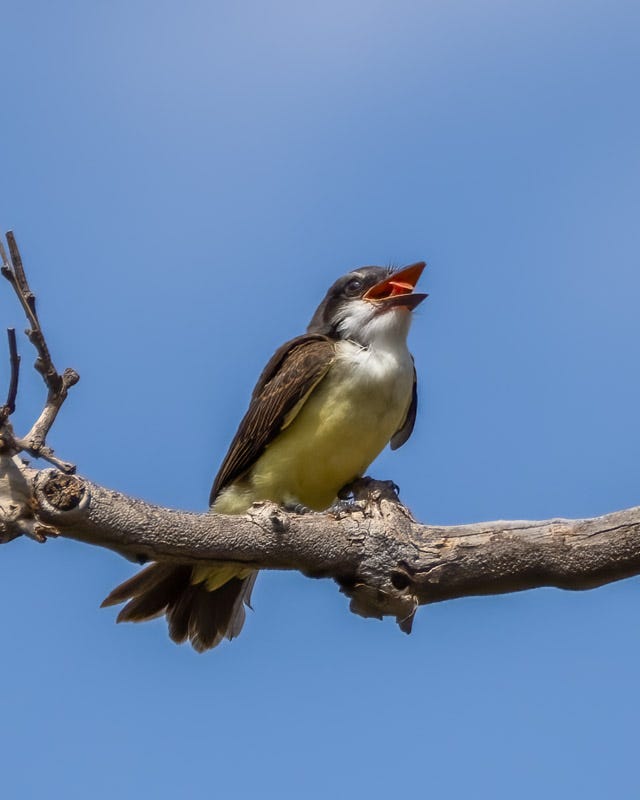
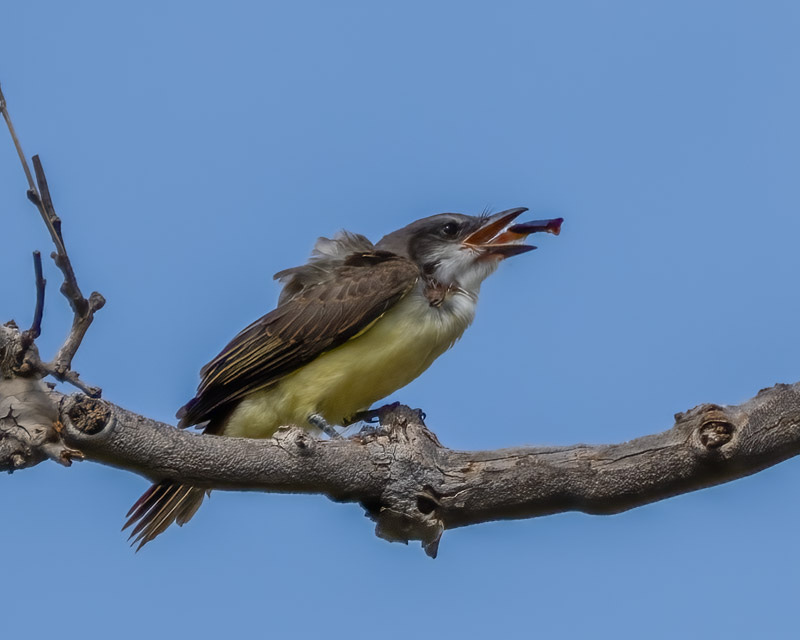
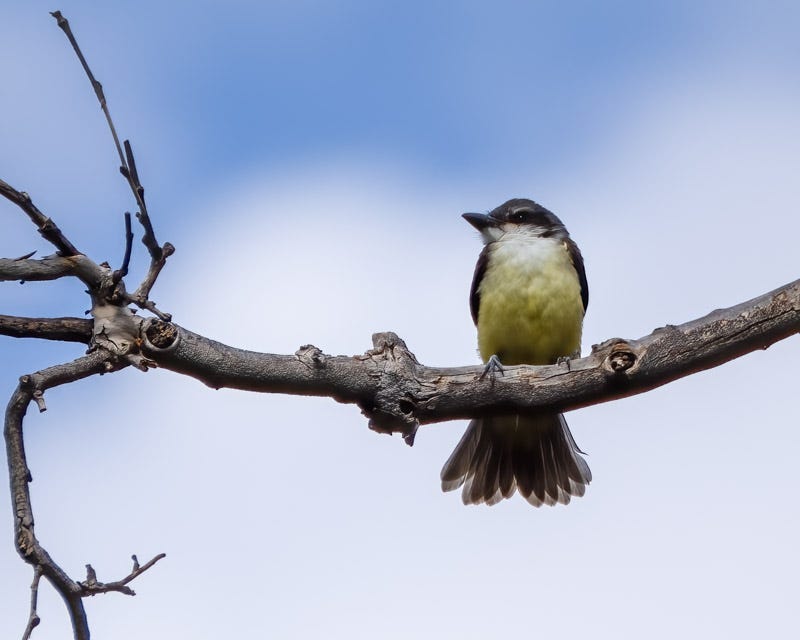
What a wonderful series of photos and explanations of this behavior between parent and young!
The young one bit off more than he could chew!